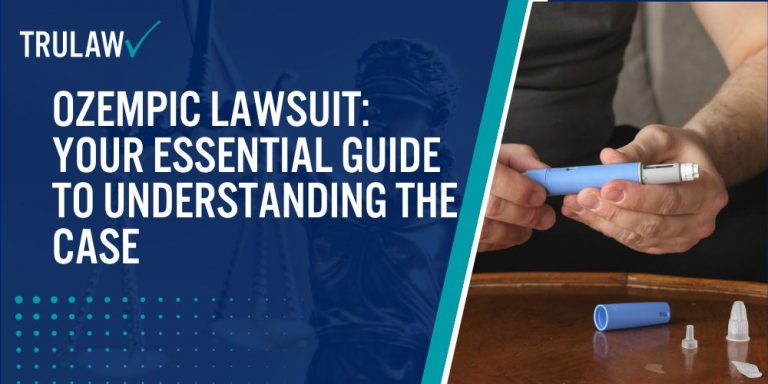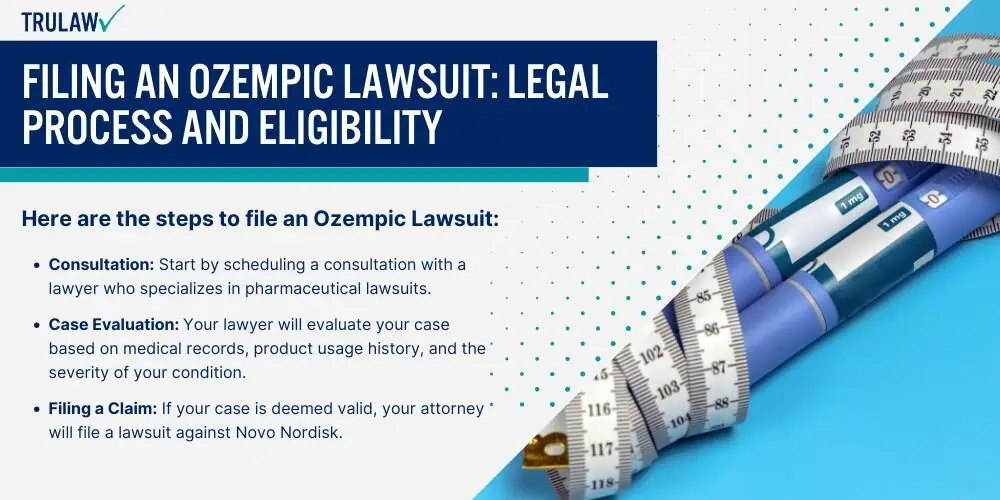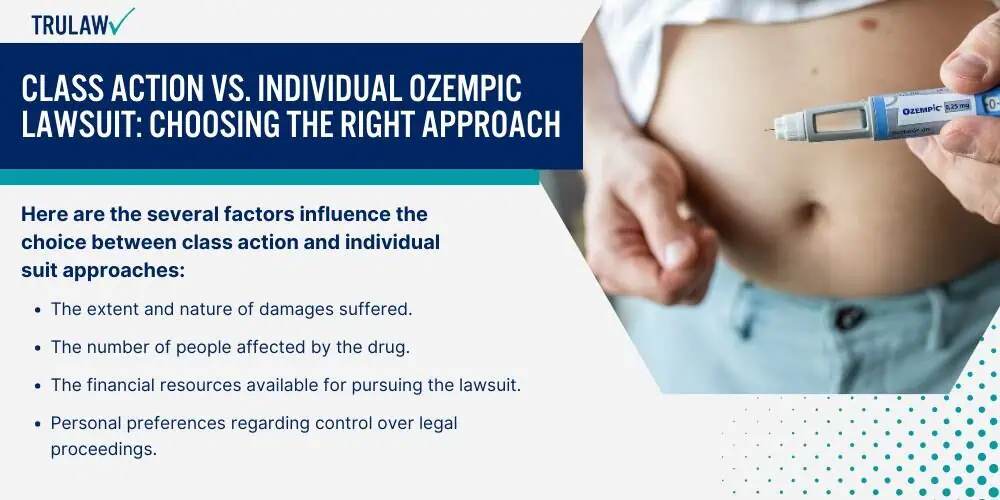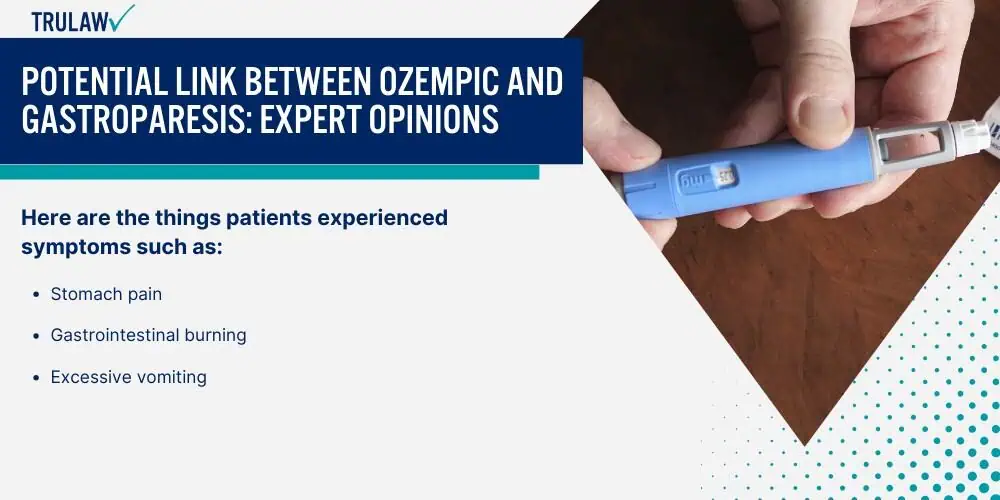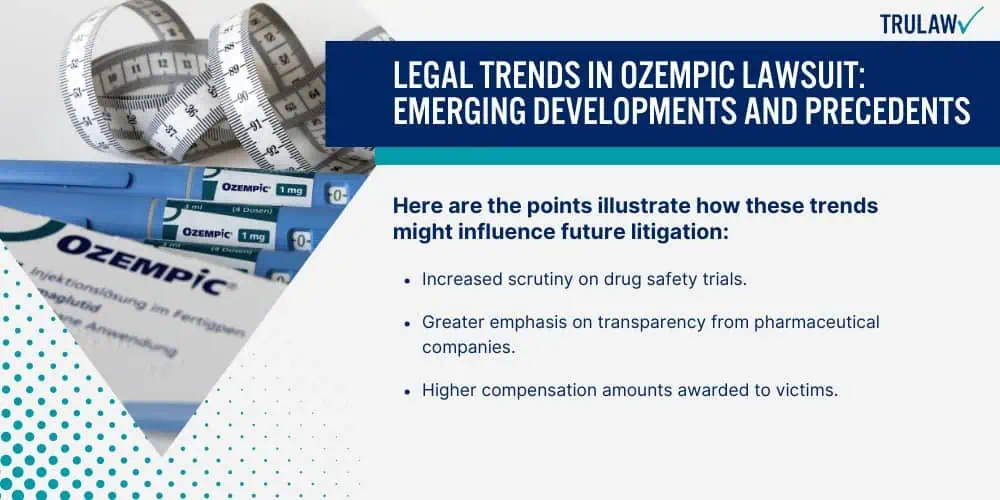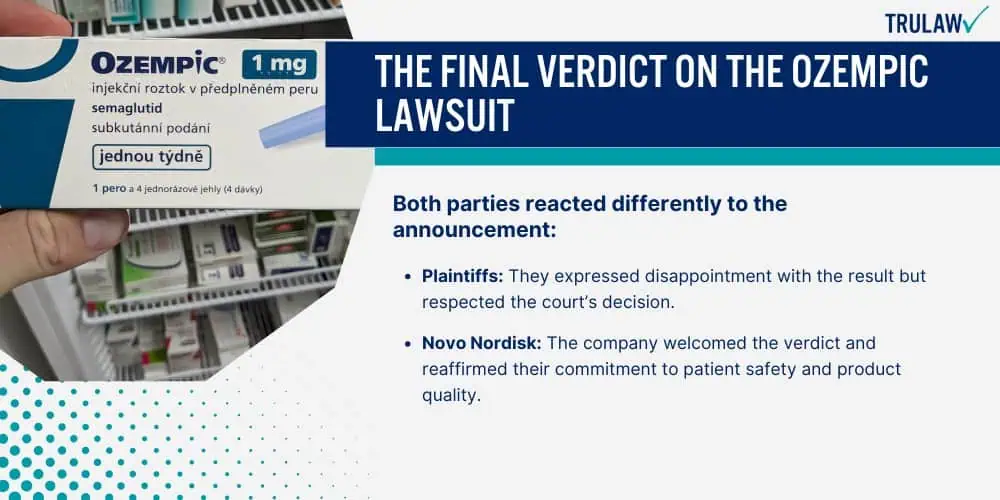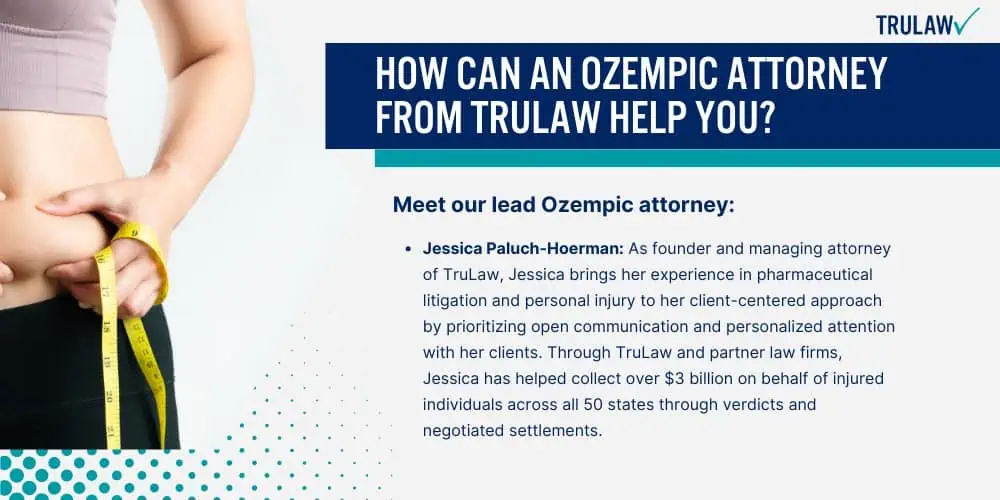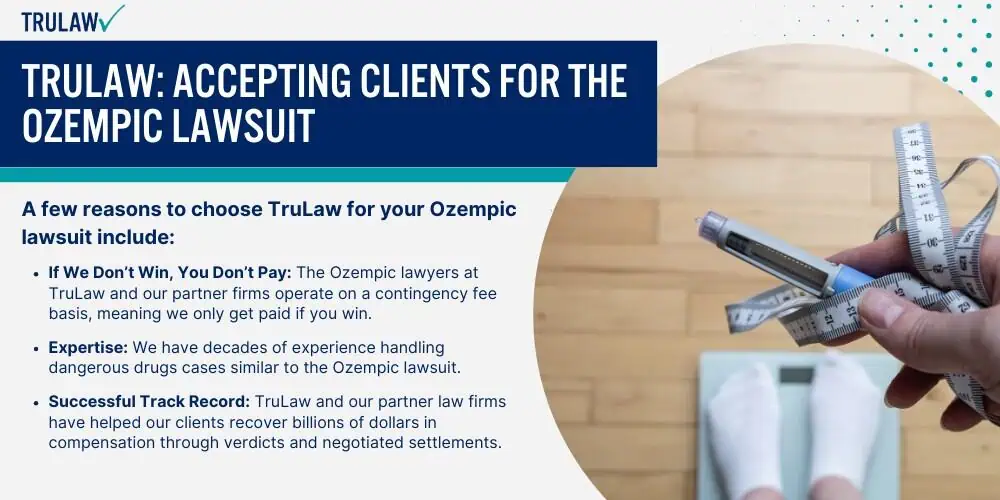Pharmaceutical litigation has seen a significant increase in recent years, with the Ozempic lawsuits being no exception.
These legal battles are part of a broader trend that reflects growing concerns about drug safety and efficacy with newly identified safety signals.
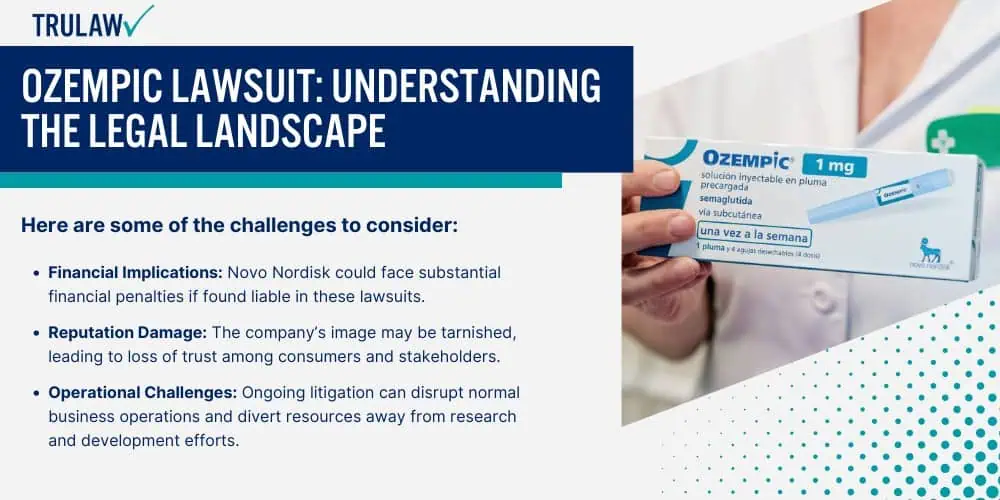
The company’s reputation and financial stability have been put to test as it navigates through this challenging legal landscape.
Here are some of the challenges to consider:
- Financial Implications: Novo Nordisk could face substantial financial penalties if found liable in these lawsuits.
- Reputation Damage: The company’s image may be tarnished, leading to loss of trust among consumers and stakeholders.
- Operational Challenges: Ongoing litigation can disrupt normal business operations and divert resources away from research and development efforts.
Here are the things to consider for approval processes:
- Stricter Approval Processes: Regulatory bodies may implement stricter approval processes for new drugs.
- Increased Scrutiny: Existing drugs may be subject to more rigorous post-market surveillance.
- Improved Transparency: Drug manufacturers might be required to provide more detailed information about potential risks and side effects.
Here are the things included for overseeing:
- Regulatory Action: The FDA can issue warnings or impose fines on pharmaceutical companies found guilty in these lawsuits.
- Policy Changes: The agency might revise its policies regarding drug approval and post-market surveillance based on lessons learned from these cases.
- Public Communication: It falls upon the FDA to inform the public about any potential risks associated with drugs involved in litigation.
To sum up, the Ozempic lawsuits serve as a stark reminder of the complexities and challenges within the pharmaceutical industry.
They underscore the need for stringent regulatory oversight, robust legal frameworks, and corporate responsibility in ensuring drug safety.
